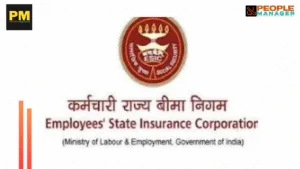Merck India: Fertility Benefit Program sets a new Standard for Companies
The Merck India, Fertility Benefit program's goal is to give employees the tools they need to balance their personal and professional goals, especially when it comes to family planning

Merck India introduced a fertility benefit program to employees globally, setting a new standard for companies to define employee benefits.
With its innovative Fertility Benefit Program, Merck India, a major player in the global life sciences industry, is setting new standards for employee well-being. Offering both financial and emotional assistance for fertility treatments to both male and female employees and their spouses, this creative program takes on a taboo subject head-on.
The curriculum was created with a thorough grasp of how the workforce is changing. According to Shiv Kumar, Director of HR at Merck India, “our ‘leaky bucket’ concern, where women drop out at senior levels, made us realize we needed to do more.” “The program’s goal is to give employees the tools they need to balance their personal and professional goals, especially when it comes to family planning.”
Merck proactively provides a range of fertility preservation therapies, including IVF and IUI, to its employees and their spouses in recognition of the pressures placed on women by society to follow strict timeframes for birth. Kumar emphasizes, “This financial support recognizes the complexities and costs associated with these treatments.” It is capped at Rs 10 lakh.
Discussions on fertility are sensitive, particularly in India, where they are still mainly taboo. Merck India goes above and beyond conventional channels to break down obstacles. The arranging panel talks with medical professionals and those who have experienced infertility. According to Kumar, “the volume of questions we received demonstrates employees’ desire to learn and discuss these issues openly.” The employee assistance program provides easy access to counseling support, emphasizing the importance of mental health.
A fundamental component of the program is inclusivity. Recognizing the stigma associated with male infertility, it also applies to male employees. Kumar highlights that “this move sets a positive shift in societal norms.” All employees are eligible for the program, which is gender-neutral regardless of gender identity.
It’s critical to gauge the effects of this audacious decision. Merck will monitor general well-being, attrition rates, and engagement. “The program’s ability to translate into heightened engagement and increased organizational stickiness will serve as the program’s key performance indicator,” adds Kumar.
The program, which debuted in late 2023, is already gaining popularity. Due to strict access controls, only two levels of the organization handle sensitive information since confidentiality is of the utmost importance.
Merck India plans to grow in the future in an effort to change legislation pertaining to assisted reproduction and make the program more gender-neutral. When legal frameworks allow, they hope to extend benefits to the LGBTQ community as well, demonstrating their dedication to changing policies to accommodate the varied requirements of their workforce.
In conclusion, Kumar revealed, “This program is not just a policy; it’s a beacon of support and understanding, signalling a shift towards a more empathetic and inclusive workplace.” Through its proactive approach to a delicate subject and the provision of concrete assistance, Merck India is reinventing employee well-being and establishing a new benchmark for corporate compassion and diversity in India.
Read more news like this on PeopleManager.co.in
Value our content… contribute towards our growth. Even a small contribution per month would be of great help to us. Since our establishment, we have been serving the industry through daily news and updates.
Our content is free for all, and we plan to keep it that way
Support the People Manager. Pay Here (All it takes is a minute)
- ESIC Unveils SPREE 2025: A Strategic Push Toward Universal Social Security - July 3, 2025
- Tamil Nadu Government Issues Standard Operating Procedure to Strengthen Implementation of the PoSH Act - July 2, 2025
- Sharjah Launches Bold HR Reforms: Marriage Leave and Family Care at the Forefront - June 24, 2025








